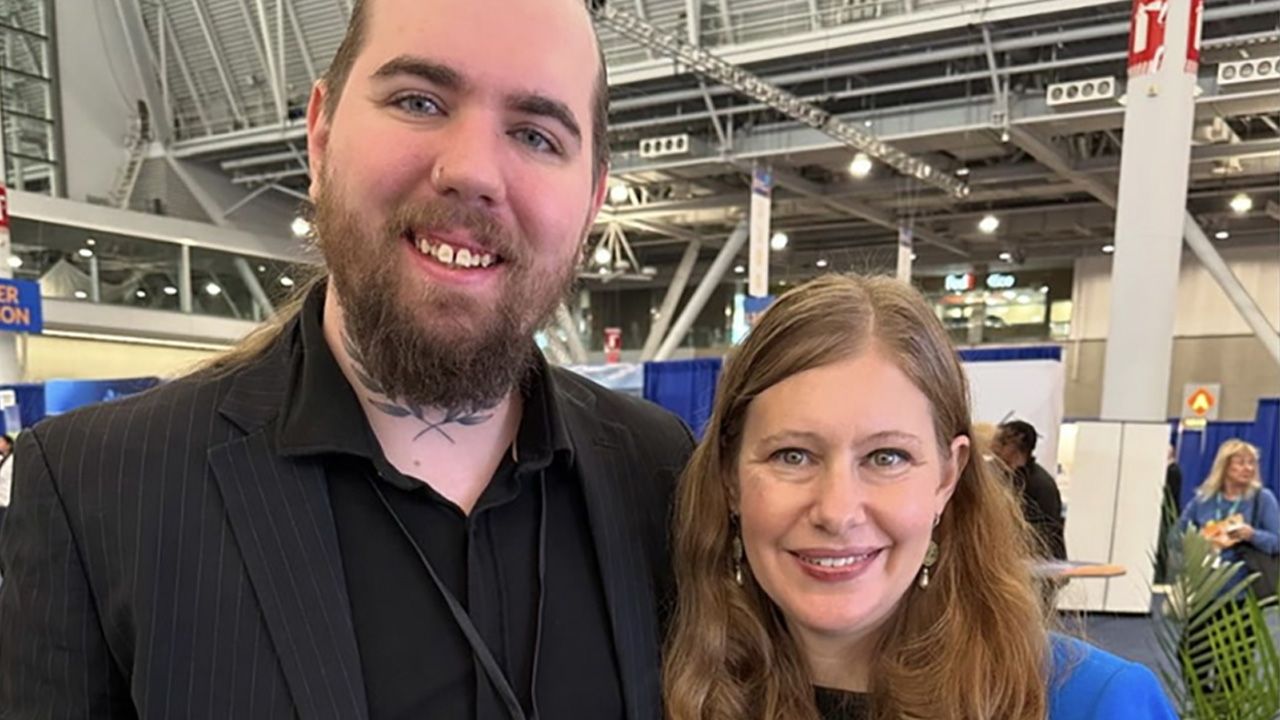Advocacy — taking action to create change on behalf of others — can be life-changing for many with health conditions like schizophrenia.
This is true for Kody Green and Bethany Yeiser, two people diagnosed with schizophrenia who’ve approached advocacy in different ways with goals of educating others about schizophrenia, dispelling stigma, connecting with others, and making a difference in the lives of those affected by the condition.
We sat down with Green and Yeiser to discuss their thoughts on and experiences with schizophrenia advocacy.
Everyday Health: Why did you decide to become an advocate?
Kody Green: My journey through advocacy was kind of unintentional. I started just posting about my life as a person living with schizophrenia [and] as a recovered addict. I made a video that I called ‘Schizophrenic Storytime’ on TikTok. I went to sleep with 300 followers, and I woke up with 10,000 followers. I didn’t choose my username [@schizophrenichippie]. It was actually [from] one of my first videos I did. It was a hate comment that I got, and so I decided to take it and use it as my own branding. And, it just kind of stuck. I started realizing that people were able to identify with my story. It was unintentional for me to get into advocacy, but my story started connecting with people, and I realized how big of an impact it could make if I kept doing it.
Bethany Yeiser: Well, my dream was to go back to school, and so when I was diagnosed with schizophrenia, of course, I was told that was totally impossible. But I did go back to school. I graduated in my field of molecular biology, which had been my dream years prior. I graduated with a 3.83 [grade point average]. I did really well, and I told a few people in school, “Hey, you know, I have schizophrenia.” And I mean, they look at me and they don’t know how to respond to that. Am I dangerous [or] erratic? Should they not speak to me again? Should they walk away? So, I started telling people what I’d gone through, and I started feeling like I was living under the shadow and nobody knew who I really was. My psychiatrist really encouraged me to write a memoir, and I published Mind Estranged in 2014. When Mind Estranged came out, I got a very different response. People would tell me they learned something. Some people told me I was brave. And all of a sudden, I’m able to share the most intimate details of my life with everybody.
EH: Why is it so important to connect with other people with schizophrenia?
KG: I think the reason it’s so important to connect with other people with schizophrenia is because it’s still a very stigmatized illness. It’s still a very misunderstood illness. I get a lot of confusion and [misunderstandings] through people that comment on my posts who don’t understand that someone with schizophrenia could be healthy and get medication and treatment so that they present like I do.
EH: Do you ever find it challenging to have one-on-one conversations with others about schizophrenia?
BY: [Occasionally] I will run into an old friend I haven’t seen in many years. I’ll mention [that I have schizophrenia] and they give me this frightened look, like, “Oh, schizophrenia!” And I was like, “I forgot that [stigma is] still present in the community.”
EH: What’s your message to someone who’s been newly diagnosed with schizophrenia?
KG: I think the most important message I share with people who are newly diagnosed is, there is hope later on in life to be living comfortably and functionally, and you get back a lot of your old self. I think that’s the most devastating part of having an illness like schizophrenia — the fear that that won’t come back.
EH: What’s something positive you’ve gained or learned through your experience?
BY: I just remember when I was diagnosed, I thought, “This is it. If I have schizophrenia, I’ll be locked away forever. I’ll never be taken seriously.” The fact of the matter is, the vast majority of people with schizophrenia today are living in the community.
EH: What’s something that you love doing in the advocacy space?
BY: I love my foundation [CURESZ Foundation]. It makes me happy. It keeps me going, and then I feel like I’m making a difference.
EH: What message do you want to leave with people about life with schizophrenia and advocacy?
KG: No matter what you’re advocating for, no matter what your illness is, no matter what you’re struggling with, there are people who want to hear your story.
BY: There is more hope than ever today.
KG: Knowing people who are going through the same thing can be just so inspiring, and I think it starts a lot of us as advocates.
Edited for length and clarity.
Read the full article here




